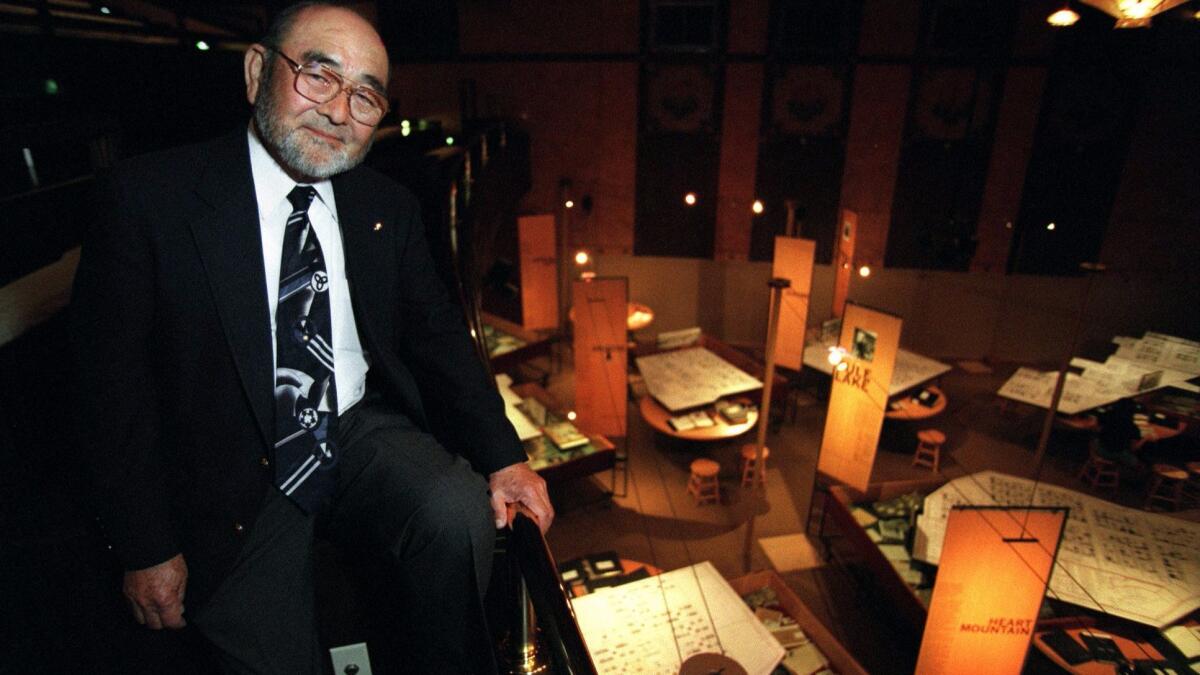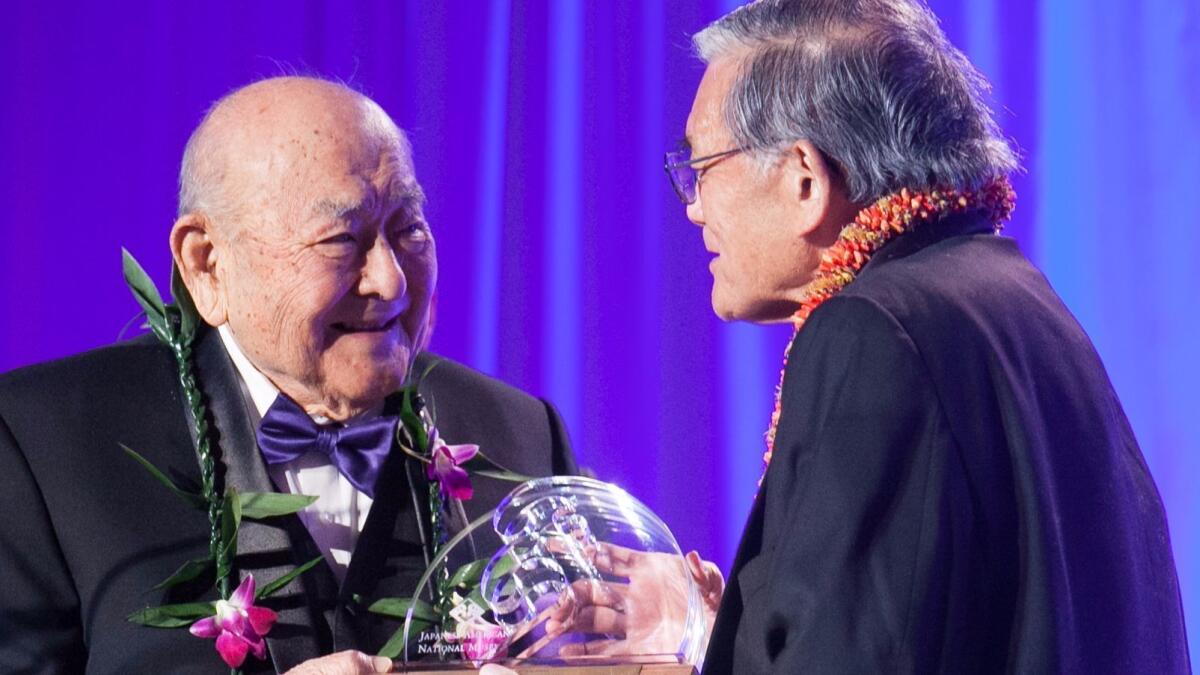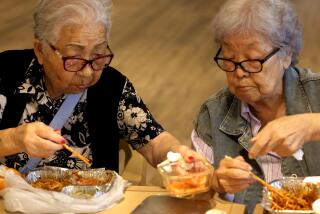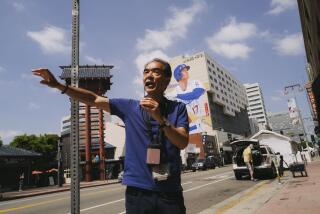Bruce Kaji dies at 91; Japanese American National Museum founder and Little Tokyo pioneer

When the Japanese American National Museum â now a staple of Los Angeles cultural life â opened its doors in Little Tokyo in an old Buddhist temple in 1992, it was well understood that without Bruce Teruo Kaji, the institution might never have come to life.
âIt is not an exaggeration to say that without his visionary leadership, the Japanese American National Museum might never have been founded,â Norman Y. Mineta, the museumâs board chair, said in a statement.
Kaji, who never strayed far from his deep L.A. roots, died Oct. 26 at his home in Torrance, surrounded by family. He was 91.
A World War II veteran who served in the U.S. Army, Kaji was born Teruo Kaji in 1926 in the Bunker Hill area of downtown L.A. His parents were immigrants from the island of Kyushu in Japan. In America, his father worked as a repairman for Southern Pacific Railroad while his mother raised the family. Kaji was the youngest of three siblings.
As a youth, Kaji tasted both discrimination and patriotism.
When he was 16, Kaji and his family were hauled off along with tens of thousands of other Japanese Americans to the internment camp at Manzanar, where he was incarcerated for three years. Ironically, he was then drafted in 1945 â during the waning days of the war â to serve a country that had held him captive.
During the U.S. occupation of Japan after the war, Kaji served in the Military Intelligence Service as a Japanese-language interpreter for the War Crimes Tribunal in both Tokyo and Manila.

After returning to Los Angeles in 1947, Kaji earned a degree in accounting at USC and legally changed his first name to âBruce,â after childhood hero, Bruce Wayne, the comic book character who morphs into Batman.
In 1951, Kaji established his own accounting firm and was part of a group that founded Merit Savings & Loan, one of the first and one of the few Japanese American-owned banks.
In addition to his work launching the Japanese American National Museum â Kaji was a key figure in fundraising, securing a building lease and making initial hires â Kaji was a community activist with deep ties to both his native Los Angeles and the local Japanese community. In 1960, he was elected city treasurer in Gardena and in the early 1970s he was appointed to the board for the newly built Los Angeles County Martin Luther King Jr. Hospital.
In 1963, Kaji and the Rev. Howard Toriumi of Union Church established the advocacy group Little Tokyo Redevelopment Assn. in response to the cityâs efforts to seize an entire block of Little Tokyo through eminent domain to build a new police headquarters. The groupâs efforts helped spark economic development in the area.
In May, 2017, the museum presented Kaji with its Legacy Award. Longtime board member and actor-activist George Takei said in an email that Kaji âpersonified the very spirit of Americanism.â
âBruce was an extraordinary leader who had a vast vision for the future of Japanese Americans at a time when the community was still struggling individually to get back on their feet after the devastation of imprisonment in barbed wire internment camps,â Takei said.
âHis personal vibrancy and energy was able to galvanize the community to understand the importance of actively engaging collectively to establish our place in the larger American society.â
Kaji was honored with the Congressional Gold Medal â along with fellow members of the Military Intelligence Service as well as the 100th Battalion and 442nd Regimental Combat Team â in 2011. Kaji also received the Order of the Rising Sun, Gold and Silver Rays, from the Japanese government in 1997.
He also authored the 2010 self-published autobiography, âJive Bomber: A Sentimental Journey.â
âIn spite of being born in poverty and experiencing the shame of his loyalty as an American being questioned, he was able to succeed and do it with a positive attitude,â said Jonathan Kaji, one of his sons.
Kaji is survived by sons Jonathan and Troy; daughter Miki Hamill and eight grandchildren. His longtime wife, Frances Tashiro, died in 2016.
Follow me on Twitter: @debvankin
More to Read
The biggest entertainment stories
Get our big stories about Hollywood, film, television, music, arts, culture and more right in your inbox as soon as they publish.
You may occasionally receive promotional content from the Los Angeles Times.











